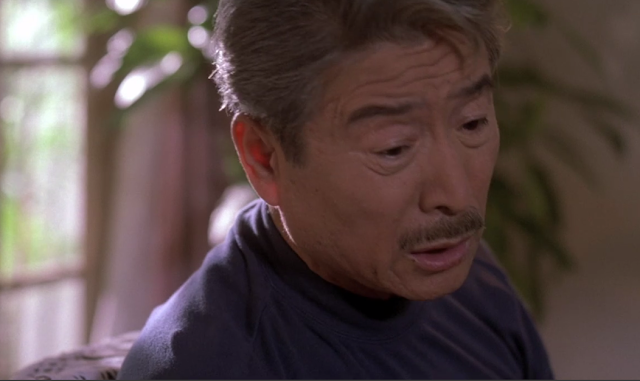Directed by: Richard Ayoade
Starring: Craig Roberts, Yasmin Paige
Genre: Drama, coming of age
Runtime: 97 minutes
WI's Rating: 8.1
It tells the story of Oliver Tate who is caught
at the junction between childhood and adulthood as he struggles with his first
feelings of love, desire, heartbreak and must choose what path he wishes to
take that'll define who he is for the rest of his life. Tate (Craig
Roberts), a strange, intelligent and unnervingly confident schoolboy who falls
for an equally strange girl Jordana (Yasmin Paige), a sarcastic,
chain-smoking femme fatale with a bit of a pyromaniac who hates anything
romantic. After an incident which sees Oliver reluctantly participate in a spot
of casual bullying that causes a girl to fall into a muddy pond, Oliver and
Jordana begin their unusual romance. All seems to be going well until Oliver
suspects his mother Jill (Sally Hawkins) of having an affair with cheesy
self-help guru Graham (Paddy Considine), who lives next door. His father Lloyd
(Noah Taylor) is so passive and uncaring that he is practically a zombie, and
so Oliver takes it upon himself to rescue his parent's broken marriage whilst
holding his own fragile relationship together.
Jordana contrasts heavily against Oliver's
intellectualism, not as a ditsy bimbo but a self-confident every-girl.
Outspoken but no revolutionary, fits-in but isn't popular and isn't gorgeous.
She's a cute, average girl. She is equally naïve as Oliver when it comes to
sex, but she has the self-confidence to keep things into perspective. She
doesn't like romance yet is too young to have been romanced; make-up is minimal
with half-polished fingernails; she doesn't use complex sentences to convey her
unique traits in the eyes of Oliver. Because of this, Oliver's infatuation with
her is earnest, her heartbreak in the final act has weight and their intimacy
is adorably off-centre.

It may sound somewhat similar to all the
coming-of-age stories that have hit the cinema recently, but what makes
Submarine so special is Richard Ayoade's ability to capture the essence of
growing up; the joy, the optimism and the tenderness alongside all the angst,
confusion and depression too. I defy anyone to not see themselves plastered up
on that silver screen in the film's opening as Oliver fantasises about the
adoration and attention he'd receive if he died.
This is a sharply observed black comedy and
coming of age story, built from great energy and a script that is brimming with
clever details. The centrepiece of this film is the creation of this bizarre,
nosey and self-absorbed teenager. And what a clever creation Oliver Tate is.
He's such a fun character and a perfect vessel for the film's entirely quirky
and very cynical dialogue. The hysterical opening vision of students lighting
candles in remembrance of his hypothetical death perfectly visualises the
bizarre and hilarious mind of this egotistical and obsessive protagonist. That
was one of the most unexpected, original moments and that made me laugh a lot.
There are so many quotable lines and memorable little quirks, like the way
Oliver measures his parent's love life by how much they've turned the light
switch, or when he describes his pipe and hat phases. It can gently nudge
everyday life for people in this community. I love all the attention Ayoade
applies to all of his characters, not just the protagonist. Lloyd is, for
example, a biologist who remembers random facts like the exact depth of the
ocean and in the family dining room you'll notice the huge fish tank. There's
also a funny moment where Oliver remembers his dad spoiling every Christmas by
saying what the presents are before someone has unwrapped them. All of the
jokes here are smart because they have the purpose of building character.
The tone the film goes for is similar to Wes
Anderson films and French New Wave but it still comes off as felling rather
fresh. The use of title cards, inner monologue and a smart lead are all used
very well and actually lead to a fair share of fun scenes. The unusual use of
colour, frequent cuts and shifting narrative all come together to give the film
a quirky style and in some ways reflect Oliver's different view upon the world
itself. The film is also shot beautifully. The gorgeous views of beaches and
far away scenery are great to view, while the views of intimacy and school life
are shown with great understanding. Especially good is were Oliver imagines his
romance on a super 8 tape, which is a very witty idea and quite striking to
see. Ayoade does a fantastic job of capturing the teenage feelings of
tenderness, fun, love, sadness and angst too. The chemistry between Roberts and
Paige is also excellent and feels normal, you understand why they would like
each other despite differences. The music is superb, the songs by Arctic
Monkeys frontman Alex Turner are very delicate and soft but packed with feeling
that fits the film perfectly.
The ups and downs of this British comedy are
mainly due to Ayoade's wonderful screenplay and direction that are touching yet
never slip into sentimentality - he often playfully pokes fun at it in many
cases – but what also deserves credit are the poignant score by Arctic Monkey's
singer Alex Turner, the cinematography that effortlessly shifts between comic
framing and beautiful imagery and the note-perfect performances by the entire
cast.































